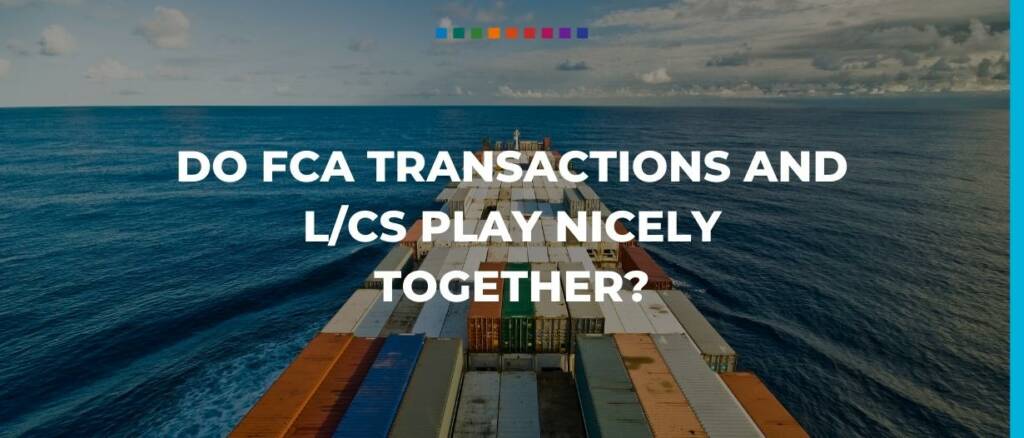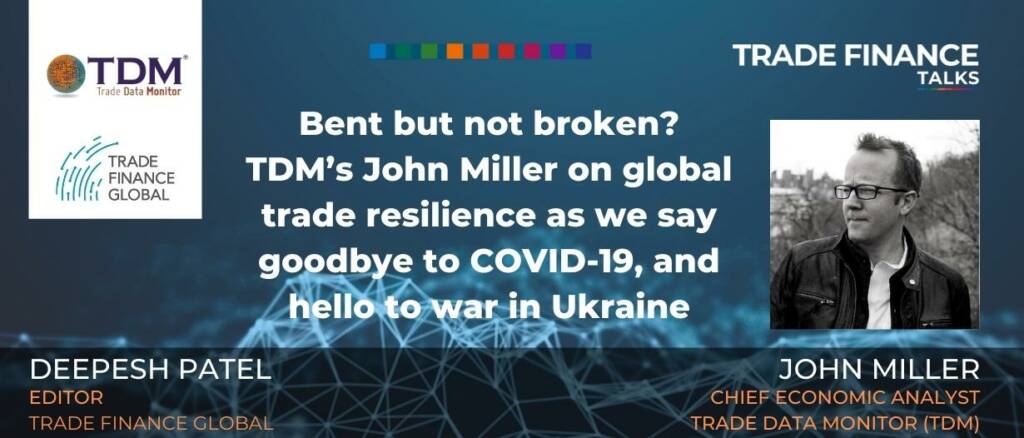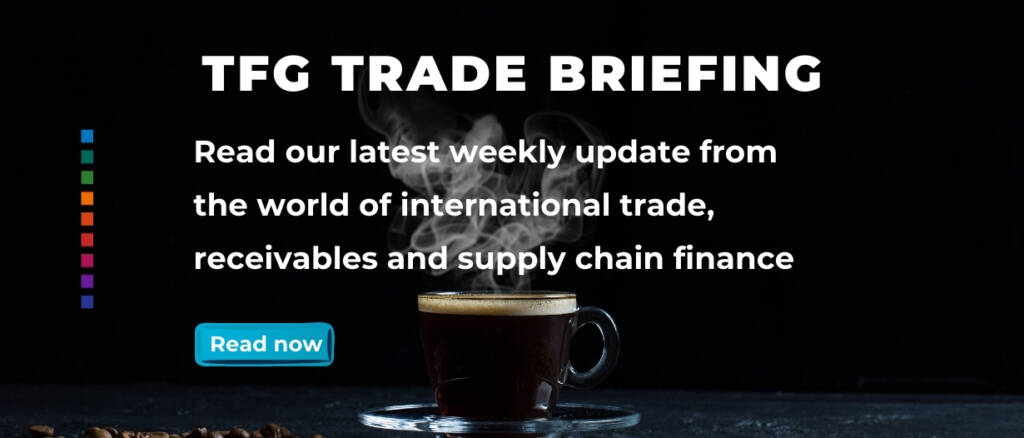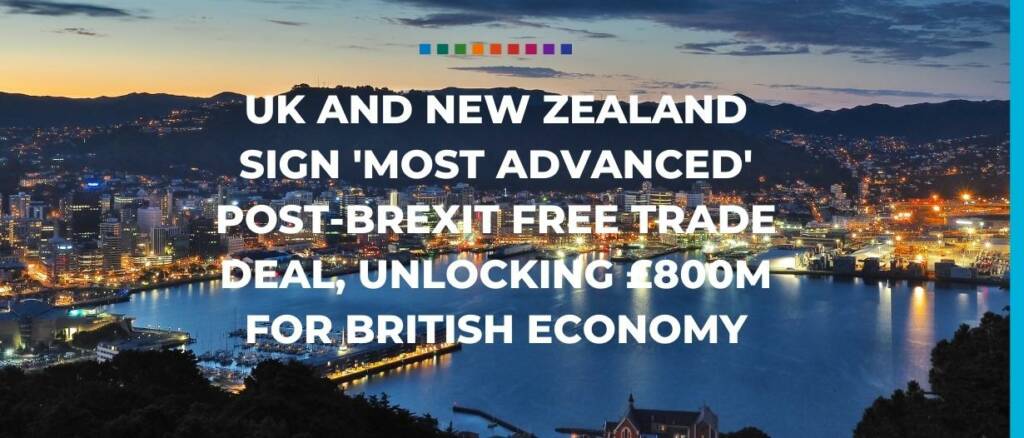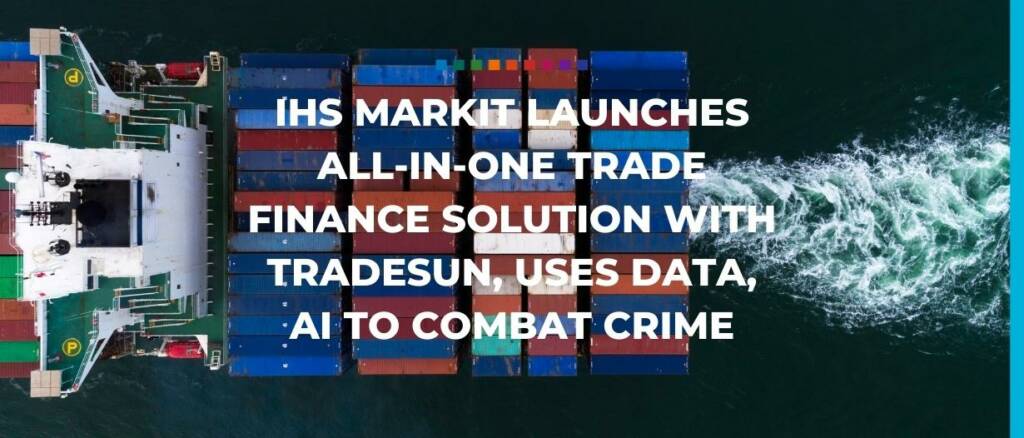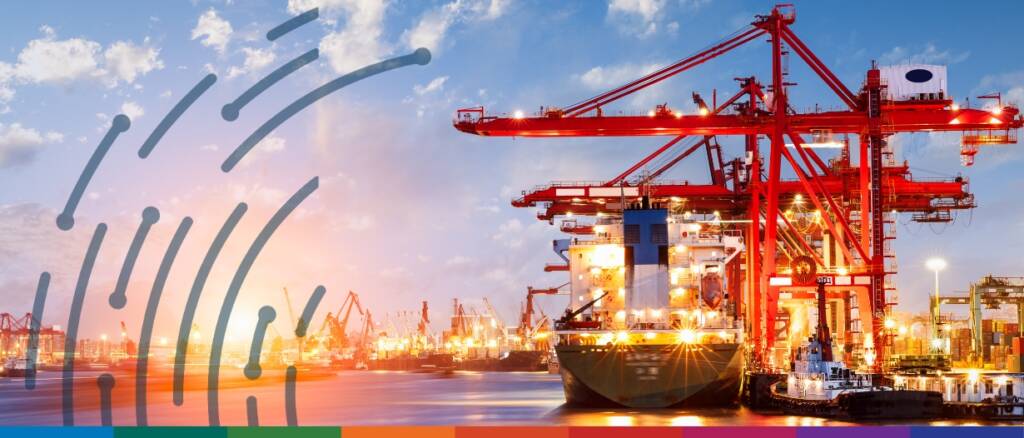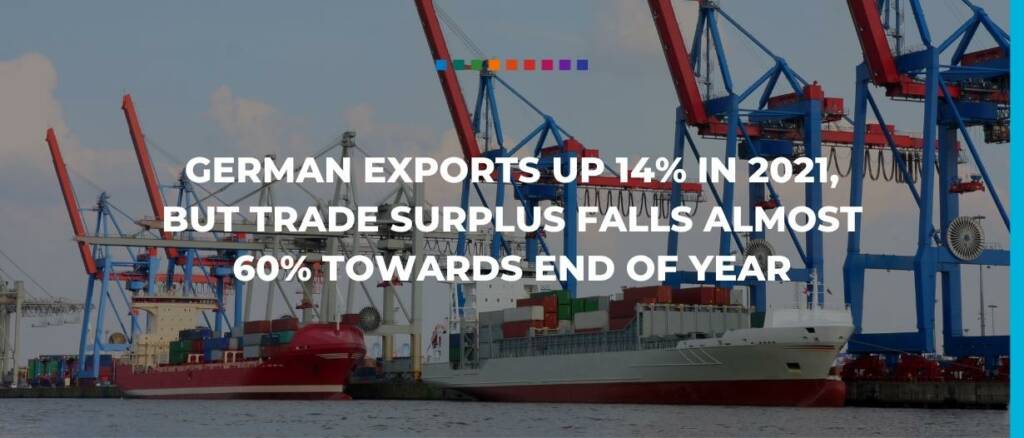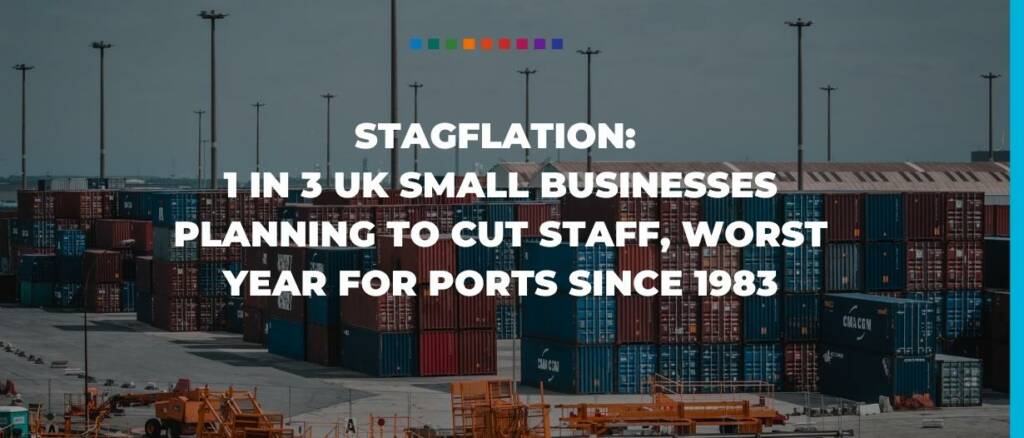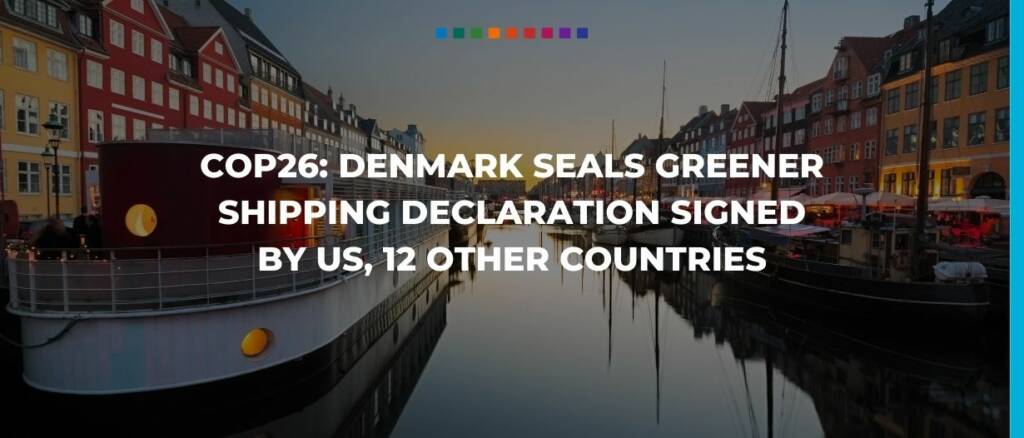Assuming we are looking at the normal type of Letters of Credit with the latest shipment date, port/airport of loading, port or airport of destination and requirement to present an onboard B/L or an AWB, then the answer is “NO”.
In our latest podcast, TFG’s Deepesh Patel spoke with John Miller, chief economic analyst at Trade Data Monitor (TDM), about the surprising resilience of global trade over the last two years
Among our top stories: Going nuclear – SWIFT ban to hamper Russian trade
The UK and New Zealand have signed a new free trade deal that will remove trade barriers on a huge range of UK goods and services. The deal is expected… read more →
The US and its Western allies have ramped up harsh economic sanctions against Russia, as it continues to attack Ukraine
IHS Markit, a global provider of shipping and maritime data and analytics, has signed a new trade finance partnership with compliance solutions brand TradeSun. Under the deal, IHS Markit and… read more →
Freeports are a special kind of air, rail, or seaport, where normal tax and customs rules don’t apply, says John Lucy, director of Liverpool City Region Freeport
Germany’s exports rose 14% in 2021 compared with 2020, but the country’s trade surplus fell almost 60% towards the end of the year. New data from Germany’s Federal Statistical Office,… read more →
New data from the UK has revealed yet more evidence that stagflationary clouds are gathering on the horizon, as both ports and small businesses struggle to recover from the COVID-19… read more →
An agreement has been reached by Denmark, the US, and 12 other countries on delivering a net-zero global maritime industry by 2050. Led by Denmark, the ‘Declaration on Zero Emission… read more →















